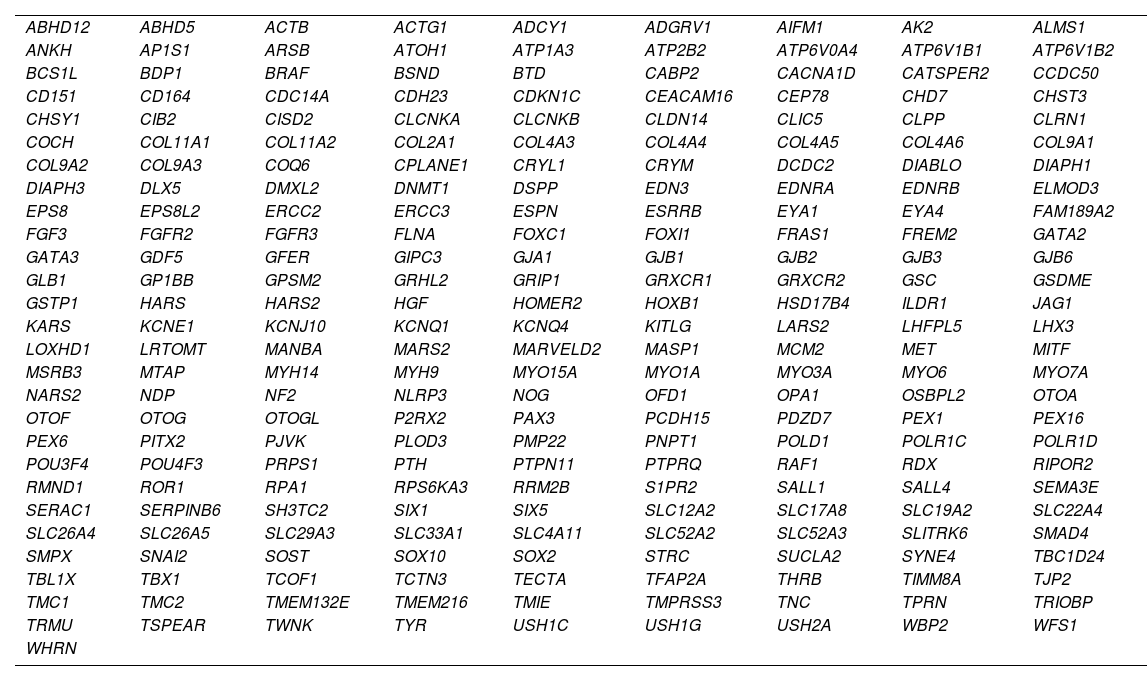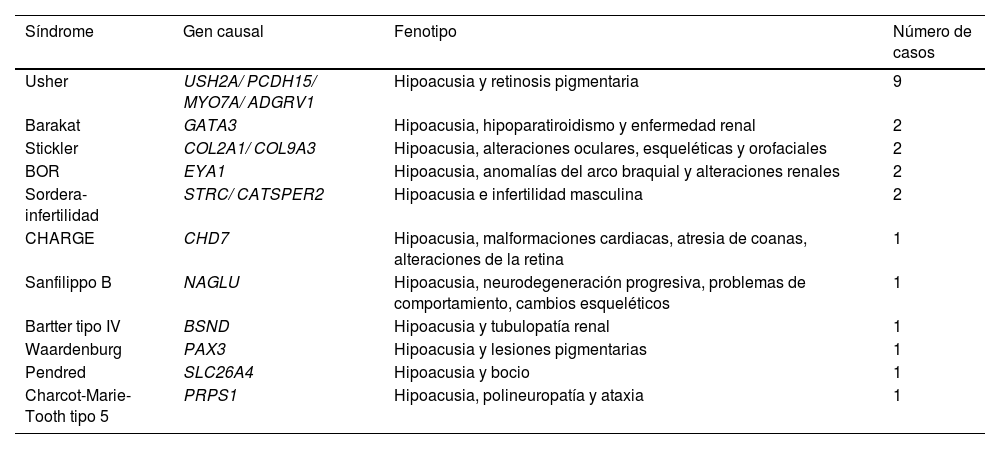La hipoacusia neurosensorial (HNS) congénita o de inicio precoz es una de las enfermedades hereditarias más frecuentes en nuestro medio y es la deficiencia sensorial más frecuente. Es importante realizar un estudio etiológico de la hipoacusia y el estudio genético mediante la secuenciación de nueva generación (NGS) es la prueba con mayor rendimiento diagnóstico. Nuestro estudio muestra los resultados genéticos obtenidos en una serie de pacientes con HNS congénita/de inicio precoz bilateral.
Material y métodoSe incluyeron 105 niños diagnosticados de HNS bilateral a los que se les realizó un estudio genético entre los años 2019 y 2022. El estudio genético consistió en una secuenciación masiva del exoma completo, filtrando el análisis para los genes incluidos en un panel virtual de hipoacusia con 244 genes.
ResultadosSe obtuvo un diagnóstico genético en 48% (50/105) de los pacientes. Se detectaron variantes patogénicas y probablemente patogénicas en 26 genes diferentes, siendo los genes más frecuentemente afectados el gen GJB2, USH2A y STRC. De las variantes detectadas 52% (26/50) se asociaron a una hipoacusia no sindrómica, 40% (20/50) una hipoacusia sindrómica y 8% restante (4/50) se podían asociar tanto a una hipoacusia sindrómica como no sindrómica.
ConclusionesEl estudio genético constituye una parte fundamental del diagnóstico etiológico de la HNS bilateral. Nuestra serie muestra que el estudio genético de la hipoacusia mediante NGS tiene un alto rendimiento diagnóstico y nos proporciona información de gran utilidad en la práctica clínica.
Congenital/early-onset sensorineural hearing loss (SNHL) is one of the most common hereditary disorders in our environment. There is increasing awareness of the importance of an etiologic diagnosis, and genetic testing with next-generation sequencing (NGS) has the highest diagnostic yield. Our study shows the genetic results obtained in a cohort of patients with bilateral congenital/early-onset SNHL.
Materials and methodsWe included 105 children with bilateral SNHL that received genetic testing between 2019 and 2022. Genetic tests were performed with whole exome sequencing, analyzing genes related to hearing loss (virtual panel with 244 genes).
Results48% (50/105) of patients were genetically diagnosed. We identified pathogenic and likely pathogenic variants in 26 different genes, and the most frequently mutated genes were GJB2, USH2A and STRC. 52% (26/50) of variants identified produced non-syndromic hearing loss, 40% (20/50) produced syndromic hearing loss, and the resting 8% (4/50) could produce both non-syndromic and syndromic hearing loss.
ConclusionsGenetic testing plays a vital role in the etiologic diagnosis of bilateral SNHL. Our cohort shows that genetic testing with NGS has a high diagnostic yield and can provide useful information for the clinical workup of patients.











